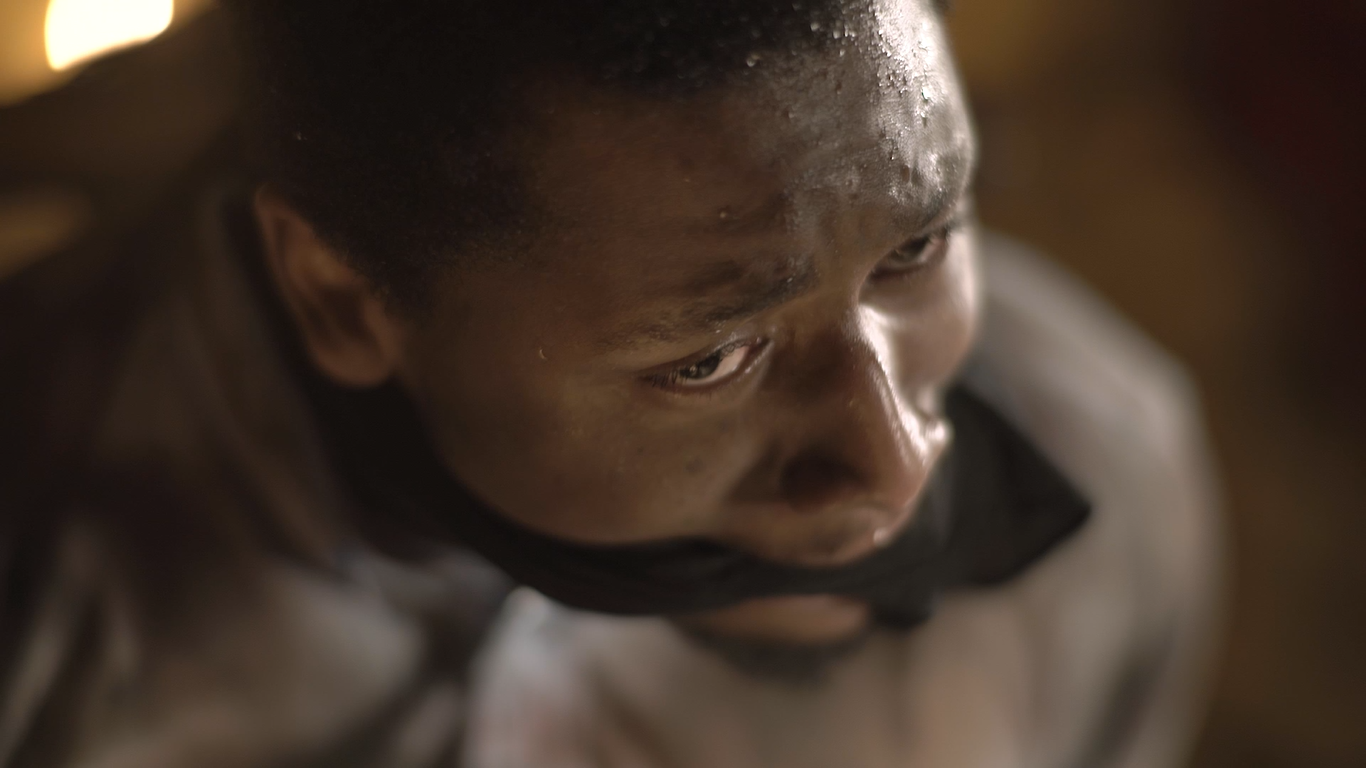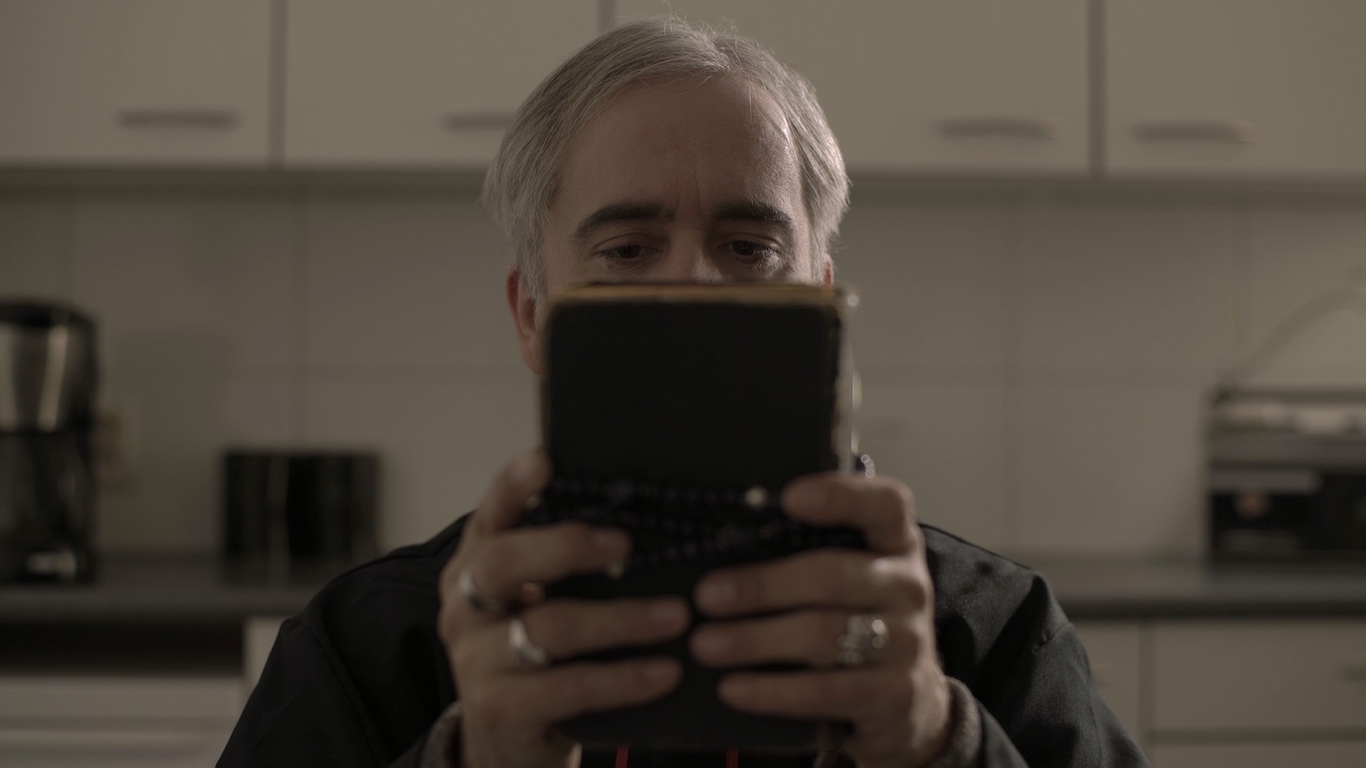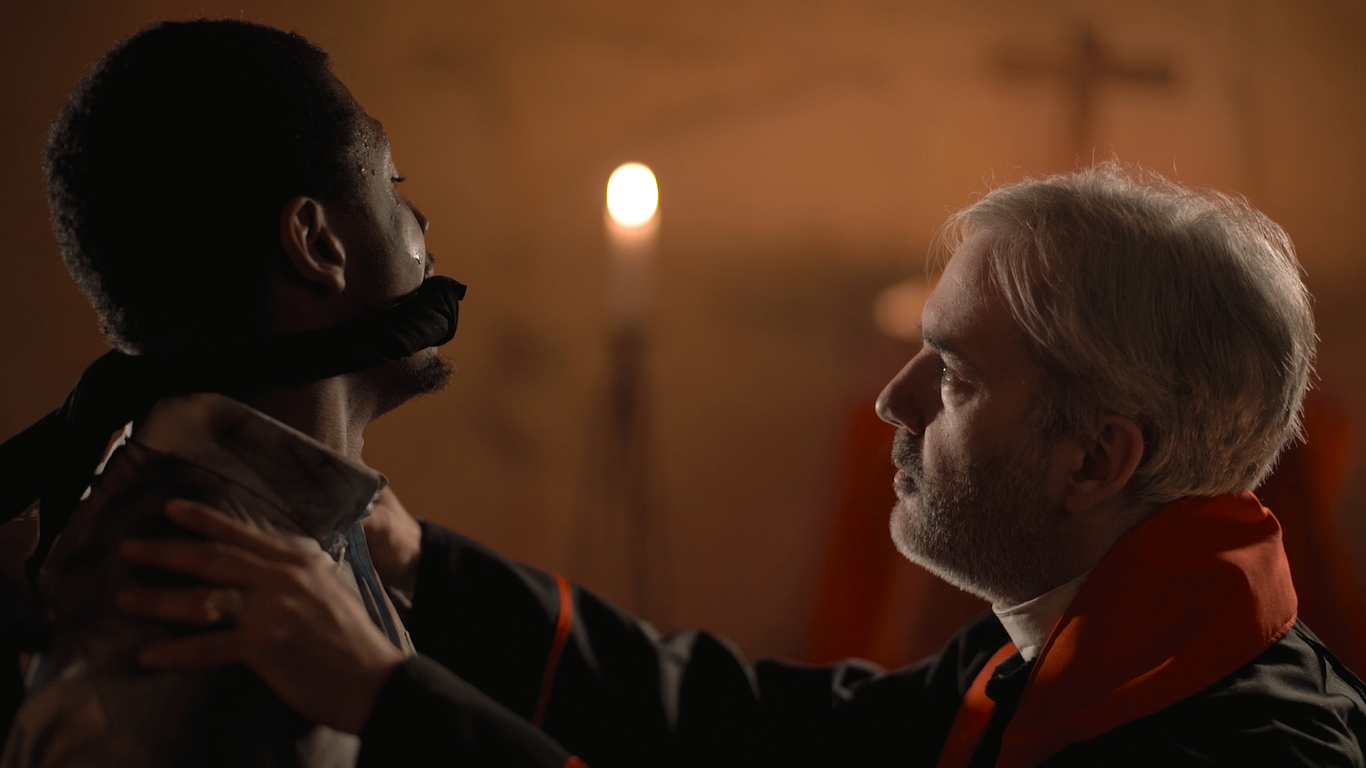
Case Study: De Tape
Director Yorn Heijnen elaborates on his proces when working on his short film De Tape.
Geplaatst op 6 maart 2017“The idea of making a 48 hour film was spinning around my head already for a very long time, so when I heard there was a new edition in Eindhoven last December I immediately signed up and gathered an enthusiastic team. I started looking for possible locations, actors, etcetera. Only a little while before the project started I found a writer, the CineSud Talent Thijs van Dijk. When we met he told me he would really like to write a very dark and controversial story which would focus on racism and religion and make people think about these subjects. I felt like this was something which hasn’t been done quite often in 48 hour projects. There are some more experimental films but you’ve rarely seen films which are trying to cross a certain border and make people think about the ethical aspect of what they’ve just been looking at.”
“I felt like this was crossing a certain border.”

Intense time-management
“The writing itself was pretty intense for Remy (Kooi, red) and Thijs who were writing the story. We called them about the things which had to be included in the film during the kick of event of the 48 Hour Project. It had to be a detective film with a callcenter employee as one of the main characters. When we met the writers Friday night, about 12 hours before the shooting would start, they pitched their idea in front of the rest of the crew. They immediately said they wanted to start a fire in a church which made me and the production leader quite nervous already. It became clear we had a pretty crazy concept, especially to realise it in such a short time, it was pure madness. This actually made the crew only more motivated to make this thing work. Whether we were able to pull this off in such a short time you are able to see in the film itself.”
“For me as a director, having only one shooting day was quite intense. This is mostly the case when you’re doing a 48 Hour Project. I had basically no time to prepare so most of the directing was being done on the spot. You just have to work with the script the writers handed to you a few hours before and try to do it understand the story the best way possible. There is even more pressure to realise it in a way the writers also imagined it.”
“A project like this all comes down to trust.”
“There is no time to be bothering yourself with another department so you really need to have faith in the abilities of other crew members. I don’t think it’s possible to make a (good) film in such a short time without this. Luckily this worked out very well in this crew.”
“A good example was my cooperation with music composer Yero Pharaoh. About 7 hours before the deadline I contacted him about my concept for the music which literally consisted only out of two sentences and some other songs as an example. Then he started working and right on time I received the music. I definitely didn’t made it easy on him because I asked him to make something which is haunting but also increasing this tension throughout the entire track. The moment when I received the music and had to see if it would match the film was one of the most nerve wracking things I’ve experienced. There was no time for feedback or adjustments anymore so the music just had to be right. Luckily it turned out great, but just the fact that you fully have to depend on the work of someone else without time for feedback was pretty intense.”

A dynamic film crew
“Every film crew is different, that’s one of the things I really like about making films. Every group consists out of different people so there are always different dynamics in a group. For this film the group was pretty great, also because everyone was focussed on doing their own task as good as possible. We all had one goal which was making an awesome film in such a short time. So when someone needed help there was always someone standing by for help. A good example where the writers of the film. While we were shooting the film, they took some time to recover the sleep they’ve lost when writing all night long to make sure the script was finished. When I was completely destroyed from the long shooting day, they took over and helped the editor with finishing a rough cut during the second night. Also for a difficult scene in the ending of the film some VFX was needed, one of the writers who also has experience with VFX (Remy) stayed up all night to make sure the scene looked perfect. This massive dedication from everyone in the crew was truly inspiring to see.”
“When I look back at it I definitely think this was one of my favourite projects to be working on.”

Patience is key
“Almost all the people who made a film during the 48 hour project in Eindhoven already posted their films online. I decided not to do this because I was still planning on submitting the film to a bunch of festivals via filmfreeway.com and see if it would be able to be screened at some festivals.”
“It’s a difficult decision not to put something online right away because it demands patience.”
“As a filmmaker you want to show your film as soon as possible when you’ve finished it but patience can be rewarding and is very important, especially when you are thinking of submitting your film to festivals. The earlier you are submitting your film to a festival, the cheaper the price but also the longer the wait, so waiting is just part of the deal. Seeing an audience watching your film, responding to it and talking about it is of course way more rewarding than receiving a like because you posted your film on Facebook, so in the end it will all be worth it.”
Be aware of what you are doing
“An important tip for (beginning) directors is to be fully aware of what you are doing on set. Preparation is key because the entire crew is depending on you. You are the one telling the story, the rest of the crew is there to help you to realize this in the best way possible. You have to be confident about your decisions because in the end this is what directing is about. You are the one responsible for the choices being made. When you show you are confident and have a clear vision on what you want to tell and how you want to tell it, the crew will also notice this and the process will run way smoother. You always have to think one step ahead when directing. For example when you are instructing your actors, you constantly have to think about why they are moving and acting in a certain way and if it makes sense with the rest of the story and the message of your film. So in A nutshell these are the most important tips, be prepared and think ahead.”